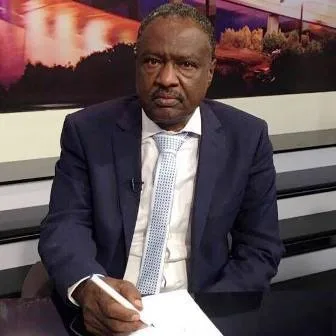A Cabinet Still Incomplete

By Rashid Abdel Rahim
We are now in the third month since the appointment of Mr Kamil Idris as Prime Minister, and this period is sufficient for the formation of the government, especially considering the limited and specified number of ministerial posts assigned to certain entities.
Expediting the cabinet formation is essential, given the tasks at hand and the responsibilities required to lay the foundations for civilian rule following the war.
What has been announced so far indicates that the Prime Minister has successfully overcome key hurdles, such as the issue of allocating shares to the armed movements.
However, minor obstacles have delayed the completion of appointments, most notably the selection of a Foreign Minister, which has stalled over a limited pool of diplomatic names, even though historically the ministry has often been led by individuals from outside the diplomatic corps.
Figures from outside the foreign service who were appointed in the past include Mohamed Ahmed Al-Mahjoub, Sheikh Ali Abdel Rahman, Farouk Abu Issa, Al-Sharif Zain Al-Abidin Al-Hindi, Dr Al-Turabi, Dr Hussein Abu Saleh, Lam Akol, Mustafa Osman, Professor Ghandour, and others.
Restricting nominations for the Foreign Ministry to a narrow circle limits and delays the selection process.
Likewise, the delay in appointing a Minister of Information comes at a time when such a post is sorely needed to announce the government officially and to lay down an urgent media strategy that would ease its acceptance and facilitate its initial launch.
What has been achieved thus far has succeeded in weakening the divisive regional lens that has increasingly dominated and paralysed the country.
The armed movements were granted freedom to nominate those they deemed suitable, which helped calm tensions in key regions that have played significant roles both in the war and in governance, especially in vital ministries such as finance.
The appointment of Dr Abdullah Darf as Minister of Justice was widely welcomed due to his broad acceptance in eastern Sudan, a region that bore significant burdens during the war, having hosted the government and large numbers of displaced persons in Red Sea State, Kassala, and Gedaref.
Dr Darf’s appointment to such an important ministry came after a period marked by alliances and decisions that contradicted Sudanese values and policies—such as the signing of the Abraham Accords, which paved the way for recognition of Israel, enabled Zionist access to military industries, and offered financial advantages by opening Sudanese airspace to the Israeli airline El Al.
With the end of that odious external influence—introduced during the transitional government’s attempts to override national values by legalising homosexuality, alcohol consumption, and other ills long rejected by Sudanese society—this appointment signifies a return to principled governance.
Dr Darf’s commendable stance against the Empowerment Removal Committee has helped reinforce the principles of justice, ending an era of unjust rule where individuals with no judicial background were appointed as decision-makers whose rulings—made behind closed doors—could not be appealed, leading to the arbitrary seizure of property and misappropriation of state funds.
Only a few steps remain to complete the formation, which requires a deliberate and sound approach—one that does not make the state hostage to narrow options based on ambassadors, academics, or personal acquaintances.
If Dr Kamil Idris assumes the Foreign Ministry himself, as some reports suggest, we risk falling into the trap of centralising a significant responsibility in the hands of one person.
The United States is preparing to intervene in Sudan, and this is no trivial matter. We must respond by widening the circle of those entrusted with handling this challenge, not by burdening a single official with even greater responsibilities.
This foreign intervention, particularly from the United States, brings with it significant risks, especially in light of Washington’s declared approach to Sudan, which seems to favour and empower those countries that sided against us during the war and supported rebel forces.
The responsibilities before us far exceed the time available, and the wheels of history are turning fast—they wait for no one.
Shortlink: https://sudanhorizon.com/?p=6437

